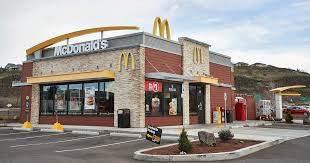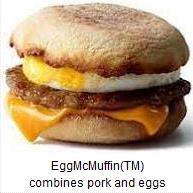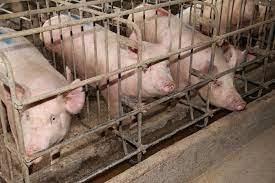 Carl Icahn, an activist investor expressing a personal and family concern, has challenged McDonald’s Corporation to expedite phasing out sourcing out of pork derived indirectly from farms housing sows in gestation crates. He intends to nominate two candidates to the Board with appropriate proxy action if the Company does not commit to a specific time frame.
Carl Icahn, an activist investor expressing a personal and family concern, has challenged McDonald’s Corporation to expedite phasing out sourcing out of pork derived indirectly from farms housing sows in gestation crates. He intends to nominate two candidates to the Board with appropriate proxy action if the Company does not commit to a specific time frame.
In response, McDonald’s Corporation issued a rebuttal claiming that supporting the trend to group housing, allowing 24 square feet per sow, would increase the cost of pork purchased by the Company representing approximately one percent of national production. Most of the comments advanced in the rebuttal are spurious given that 25 percent of U.S. sows are housed in other than gestation crates and major producers including Tyson Foods have stated that the incremental cost of eliminating gestation crates is inconsequential on the final product.
 In their public response, McDonald’s noted that the Viskase Company a manufacturer of sausage casings and meat packaging solutions with equity held by an Icahn fund, has not yet commented on crate-free housing. This is an ingenuous and irrelevant contention and falls flat as a defense. McDonalds could be facing a profound erosion of image that would cost far more than the incremental value of pork derived from sows held under group housing. The response of the Company is eerily reminiscent of circumstances leading up to the U.K. ‘McLibel’ case of 1990 in its potential to damage corporate image and the brand.
In their public response, McDonald’s noted that the Viskase Company a manufacturer of sausage casings and meat packaging solutions with equity held by an Icahn fund, has not yet commented on crate-free housing. This is an ingenuous and irrelevant contention and falls flat as a defense. McDonalds could be facing a profound erosion of image that would cost far more than the incremental value of pork derived from sows held under group housing. The response of the Company is eerily reminiscent of circumstances leading up to the U.K. ‘McLibel’ case of 1990 in its potential to damage corporate image and the brand.
The vigorous response to the Icahn initiative suggests that some QSRs including McDonald’s as a bellwether, are reconsidering commitments made in 2020 to enhance the welfare of flocks and herds producing eggs and pork. While they are understandably concerned over an activist shareholder threatening to displace seated Board members through a proxy  campaign, their concern over cost could signal an erosion of commitment to sourcing cage-free eggs. Both QSRs and casual dining restaurants are operating in a market characterized by food inflation and slow recovery to pre-COVID patronage. Restaurants are justifiably concerned over restraints to passing on increased costs to consumers in a competitive market. The implications for the U.S. egg production industry rests on the presumption that by 2025 a significant minority of hens, possibly 25 percent, will still be in either conventional cages or confined to enriched modules.
campaign, their concern over cost could signal an erosion of commitment to sourcing cage-free eggs. Both QSRs and casual dining restaurants are operating in a market characterized by food inflation and slow recovery to pre-COVID patronage. Restaurants are justifiably concerned over restraints to passing on increased costs to consumers in a competitive market. The implications for the U.S. egg production industry rests on the presumption that by 2025 a significant minority of hens, possibly 25 percent, will still be in either conventional cages or confined to enriched modules.